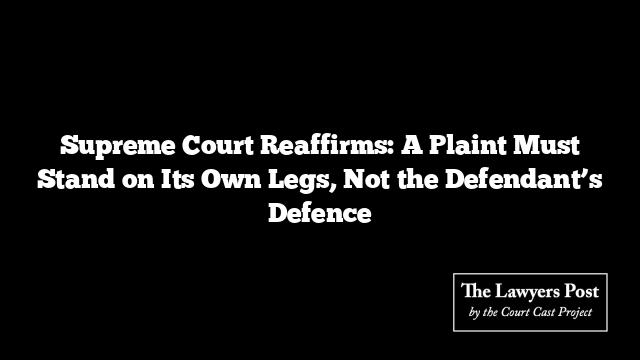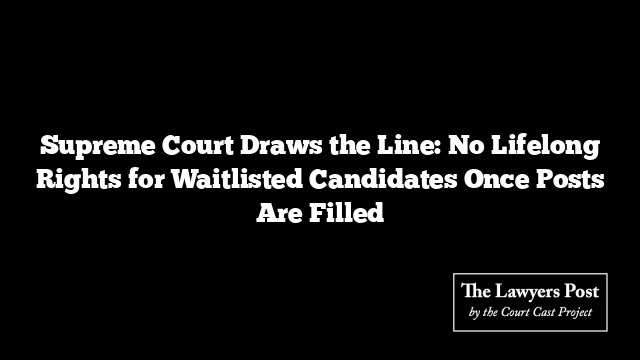The Supreme Court has clarified that when a court examines a plea to reject a plaint under Order VII Rule 11 of the Civil Procedure Code (CPC), its gaze must remain fixed solely on the plaint itself — not on the defendant’s version of events or any external material.
A Bench comprising Justices JB Pardiwala and Manoj Misra overturned a ruling of the Punjab and Haryana High Court, which had dismissed a plaint at the very outset after delving into the defendant’s defence. The top court emphasized that such an approach was legally impermissible.
“Only the averments in the plaint are to be considered to determine whether a suit is barred by law. The defence cannot be factored in at this stage,” the Bench observed.
The case revolved around a dispute over inherited property. The plaintiff sought a declaration of ownership and possession through succession, while the defendant claimed the land was bequeathed to him under a Will, reflected in subsequent land records.
The trial court had refused to reject the plaint, noting that since the claim included recovery of possession, the limitation period extended to twelve years from the conclusion of mutation proceedings — which had continued until 2017. The suit, filed in 2019, was thus within time.
However, the High Court, while exercising revisional powers, accepted the defendant’s argument that mutation had occurred in 1983 based on the Will and deemed the suit time-barred, dismissing it as beyond limitation.
The Supreme Court found this approach flawed. It noted that the High Court “failed to consider the plaint in its entirety” and was “swayed by the fact that the Will was 36 years old.”
Justice Misra, authoring the judgment, pointed out that a Will takes effect only after the testator’s death — and here, its validity had been disputed in ongoing mutation proceedings until 2017. The question of adverse possession, the Court added, was a mixed issue of fact and law that could only be resolved after evidence was presented, not at the threshold.
Restoring the trial court’s decision, the Supreme Court held that the plaint had been wrongly rejected and allowed the appeal.





